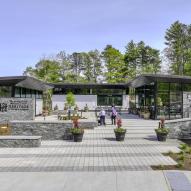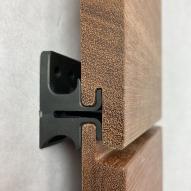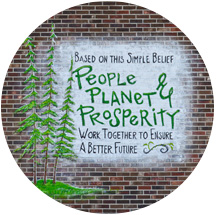Cool Structure, Hot Intent
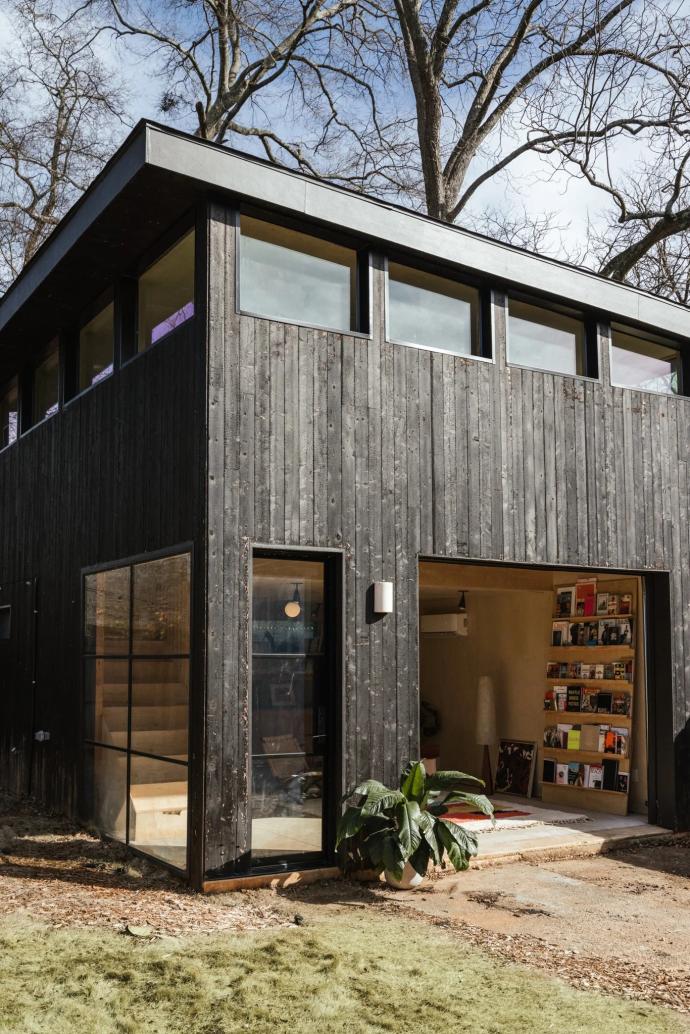
“The way that the Shou Sugi Ban material came into play, the clients always knew that they wanted to paint their house black and that was non-negotiable from the beginning. Their main house is a full Victorian, and it’s painted all black; black trim, black windows, everything. My house is also painted all black, and that’s part of how they found me because we live close to each other, says Emma Flynn designer and founder of Commoner Design Company. “We knew that we wanted to have a similar language on the ADU (Accessory Dwelling Unit), but we wanted to do something a bit more creative with it. We toyed, ‘Let’s just flip the siding vertically,’ and I said, ‘Why don’t we have a textual element come in?’ and that’s where the charred wood came in. We liked the texture, the feel of it, and the finish.”
“Our clients are from San Francisco, and they have roots in Atlanta, and they moved back from San Francisco. There are a lot of ADU work in California right now and they wanted to bring that kind of idea back East. They have a daughter, and the ADU was really meant to be a flexible space for them to grow their lives in the middle of the city.”
“They are both creative people, they are both designers, so they have very good taste, and we really hit it off with having similar interests. So, the ADU was a creative space for them where they could let go of their more traditional home that was in the West end, and this was to become a more modern creative space. A little starker, a bit freer, a space for them to think, read, create and then a spot for family as well.”
After becoming comfortable with the intent of the homeowners Flynn leaned into a previous interaction with Pioneer Millworks to help match the aesthetic of the ADU with the thoughtfulness of our sustainable wood products.
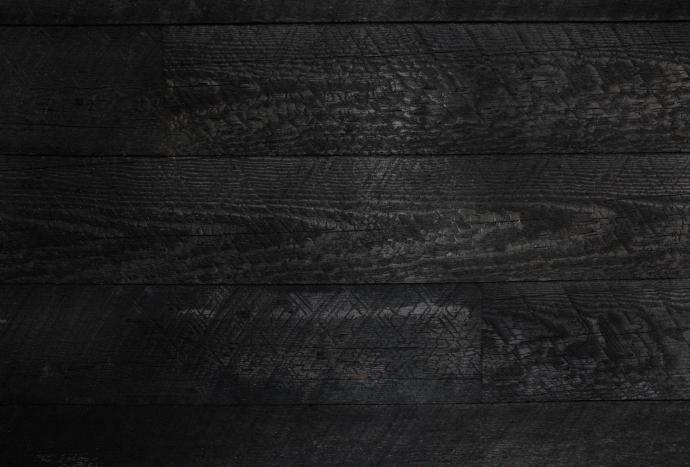
“I came from the hospitality and commercial design world, and I worked for Genzler for a long time and that’s where I was introduced to Pioneer Millworks. The first material that I came across of yours I was trying to get it into a hotel project was the reclaimed gym flooring, so I knew needed materials like that, and I loved the sustainability aspect of them. My current clients felt the same way and they had toyed with Shou Sugi Ban siding, so I said to them, ‘I have the perfect company,’ so that’s how I came to you to spec this project.”
Our Shou Sugi Ban features a dynamic living finish which ensures that it is going to change over time. Even on traditional Japanese Shou Sugi Ban siding, the black char will organically erode depending on its exposure to the elements. The evolving look suggests the Japanese aesthetic of wabi-sabi, a reminder of the transience and imperfection of all things.
“The clients went with the living finish with the expectation that it’s going to change. They like the living finishes, aging, and feeling the presence of people over time.”
Located behind the clients main living quarters, the ADU sits separate from the home but shares its aesthetics. A deft combination of the industrial and the rustic, the ADU spotlights steel railings, windows, and doors that develop a material contrast with the Shou Sugi Ban siding. The building retains a historic connection to the client’s main home but also emits a contemporary vibe and functionality.
Flynn says, “Working with the clients as designers, I always like to work with people that have vision, I think it’s a lot easier for all of us to come together and get to a final answer. I really love being a designer for creatives, we can all feed off each other and come up with this thing that is special for all of us.
“Sustainability is important to me and it’s important to put my best foot forward into the sustainability realm. I’m always looking for materials like that and I’m not recommending non-eco-friendly materials. I’m always trying to make decisions with sustainability in mind.”
Our Shou Sugi Ban cladding is a product that architects and homeowners can be assured is sustainably sourced, American made, and procured with not only aesthetic perfection in mind, but more importantly the health of our community and planet.


